The Weather Bomb.
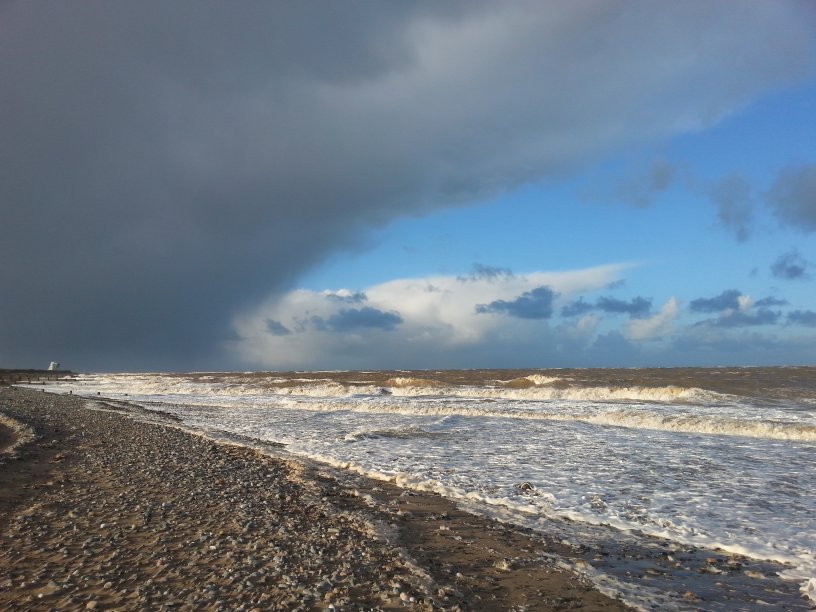
In December 2014 the TV news was buzzing with the imminent arrival of what is officially termed in meteorological circles as a 'Weather Bomb', defined as a drop of 24 or more millibars in atmospheric pressure within any rolling 24 hour period. A drop so great as to potentially whip up winds and seas as bad as any hurricane, and for the western side of the UK and Ireland, in that regard, it didn't disappoint. Exposed ground wind speeds topped 100 miles an hour and Atlantic wave heights were reputedly in the order of 60 feet and more. In short, the entire western side of the British Isles took one hell of a pounding. So too did the fish by anglers along the Lancashire Coast in the run up to the height of the storm.
I've read that song birds can detect a tornado coming a good couple of days before it actually arrives which is something the weather experts with all their technology still can't do yet. Other animals too have been implicated, giving them the opportunity to get the hell out of it before any physical damage is done. I'm sure fish can also sense impending change, either for the better or the worse, which is what brings them in on to the beaches when they know a good onshore blow is going to churn anything concealed out of the sand or weed and open up new larders to them. They also seem to know when enough is enough and it's time to pull back or risk damage to themselves, which is exactly what happened, certainly to the Cod looking to gain a feeding advantage, along the Fylde Coast just before the full impact of the 'Weather Bomb' was felt.
Charlie, Chris and I turned out to fish the beach in the days before the full force of what was coming eventually hit home. We had intended to fish the west facing stretch between Rossall and Cleveleys but it was just too wild for that. This pushed us further and further around into the Wyre Estuary looking for shelter of sorts. But unfortunately, at least a couple of small fishing matches which had decided to re-position for the same reason had beaten us to it forcing us to tag on to the outermost end. Thankfully, well for the first couple of hours of the early flood at least, we had some respite from the huge white rollers on the horizon thanks to a sand and gravel spit. But as soon as the sea broke over that it was mountainous. A raging sand storm and intermittent bouts of rain added to the delight. "What in hell's name are we doing here" was one question we asked ourselves. But like troopers, we soldiered on regardless.
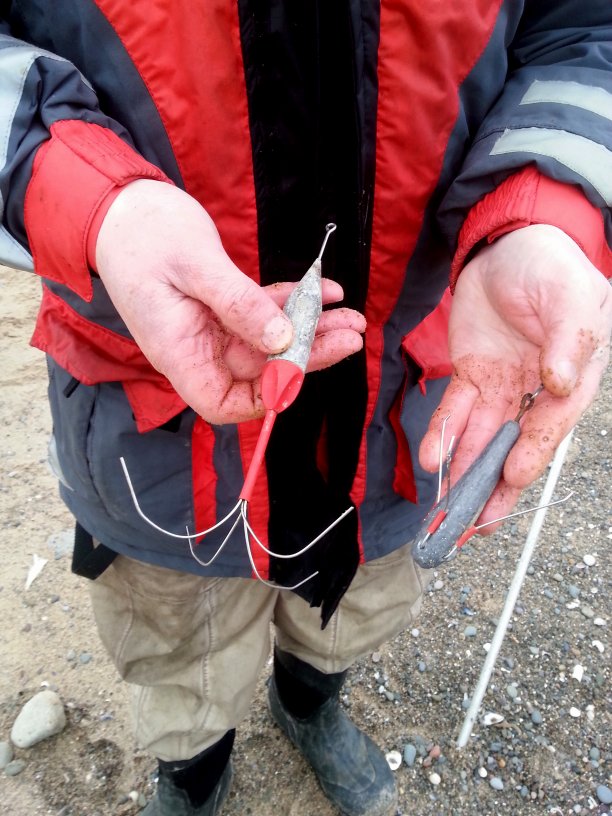
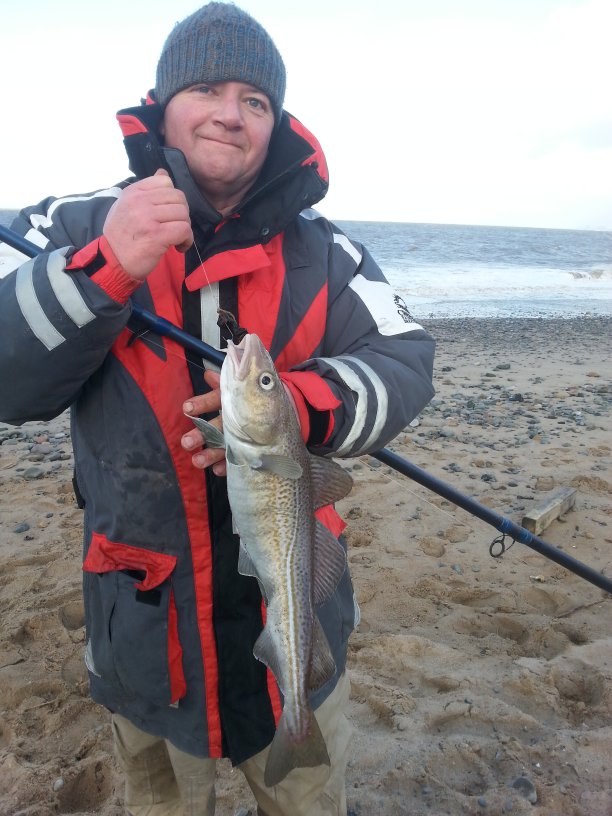
Initially it wasn't too bad. Difficult to tell bites with the wind and wave action, but at least we were managing to hold out with a 6 ounce Breakaway lead. That however didn't last for long. Once the flood tide had properly broken over the spit with the ferocity of the wind and the run of what was a big tide all working in unison, you might as well have had a standard bomb lead on the trace for all the good the Breakway leads were. The least little thing including weed, bites, and even the odd big roller thumping the line would break the grip wires and see the lead racing off towards Fleetwood until it was finally washed in at the waters edge. Usually it did this without a fish on the end. But on the odd occasion it would be with a Cod flapping up and down in the surf.
We all caught fish, particularly early on. But then it became just too much for the grip wires, though not the fish themselves which as later events would show were still right in amongst the rough and tumble looking for food. It was at this point I decided to call a time out, leaving my gear out of the water until the tide started to ease. I think Chris might have carried on struggling. Charlie on the other hand found a long tailed fixed nose wired Gemini grip of the type we use on The Mersey for uptiding hiding in the depths of his box and decided to give that a go. One of the reasons we don't normally beach-fish this type of lead is the snaggy nature of the patchy broken ground out there. But using it on a pulley rig which with the weight of a fish would in theory at least see the lead lift clear of the ground made it a worthwhile experiment.
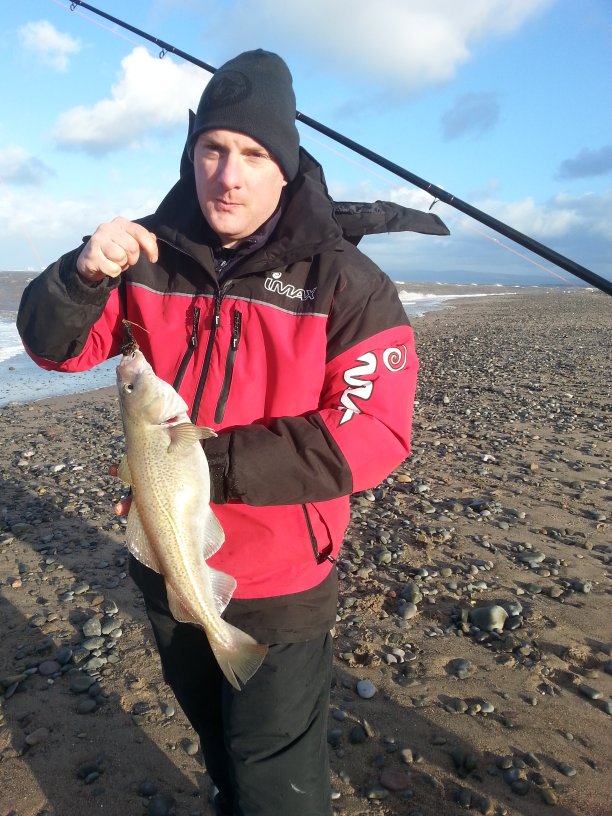
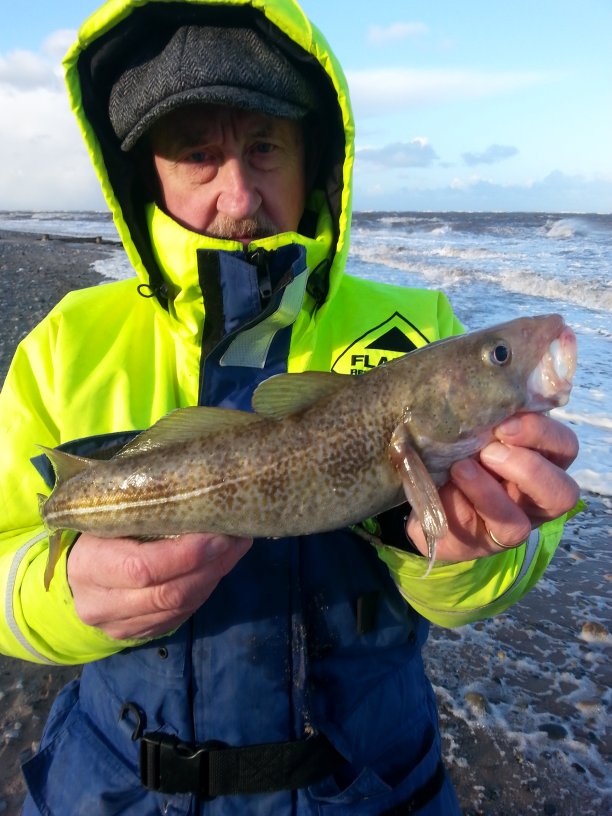
What an inspired decision that turned out to be. For not only did the gear come back safely every time and at times with a decent Cod attached, it also managed to hold out where the breakaway wires couldn't. Whether that was solely because the wires were fixed is difficult to say, though I suspect that as with many things, it's a combination of factors working together that ultimately make the difference. For example, a Breakaway can sit up on it's wires and needs a shallow angled pull from a long line to get it to lie properly and dig in, with the line because of big passing rollers having the potential to lift it out of position and loose its hold. A long tailed nose wired fixed gripper doesn't do any of that, which is why we use them for uptiding where the water is deeper, the casts are shorter, and the line angle steeper.
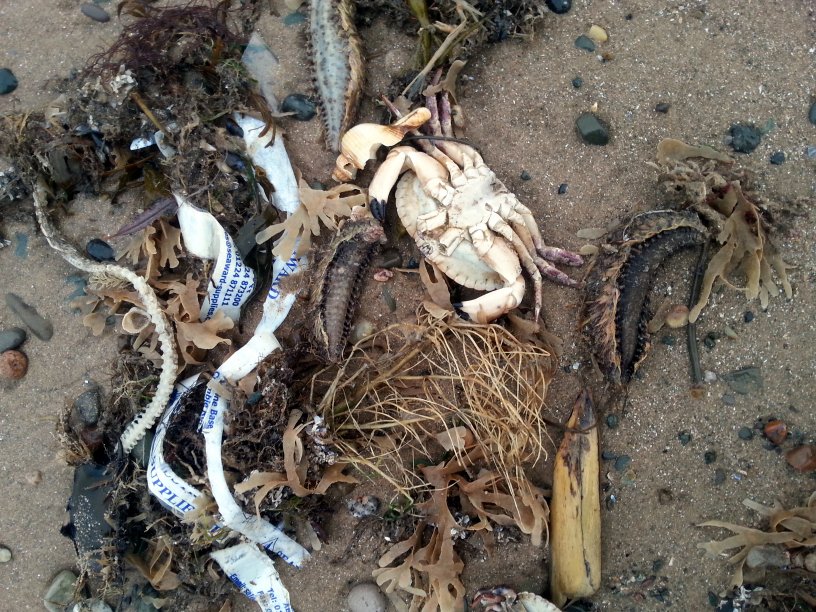
Whatever the reason why the fixed grip was able to keep on producing while all around it failed can be debated, though the proof of the pudding as they say is in the eating, and Charlie had more Cod to take home and eat than myself or Chris, for which reason we now carry a couple in case a similar situation arises in the future, which thankfully was not the case the following weekend after the 'Bomb' had gone off. It was still windy and wet, but the tides were smaller, all of which made the fishing easier. But everywhere, the devastation of what had happened was there for all to see. It was a marine mortuary. Everywhere there were dead crabs, sea mice, and the remains of Dabs smashed to pieces by the sheer ferocity of what had hit the place. Not that it was much of a boost to the fishing I suspect as much of the potential larder looked well past its sell by date in terms of interesting hungry fish.
None the less, the Cod were still in there feeding, despite the lack of run due to it being a very much smaller tide. Quite a few decent Whiting too as it wasn't as the sea wasn't as rough and Whiting definitely don't like being in the thick of things when the going gets really tough. Dabs, Flounder and a lone fat little Rockling helped ramp the species tally up, all of which supports the suggestion that the fishing along the Lancashire Coast, and in particular for the Cod this winter is showing more promise than it has done for years. Andy Bradbury who skippers 'Blue Mink' has been predicting this from as far back as the summer, and our weather limited dinghy results also bear this out. Elsewhere the story is the same. I fished The Mersey aboard Tony Parry's 'Jensen' within days of our shore fishing exploits and we had 43 Cod to over 8 pounds.
It's reassuringly nice to be able to put such a positive spin on things for once.